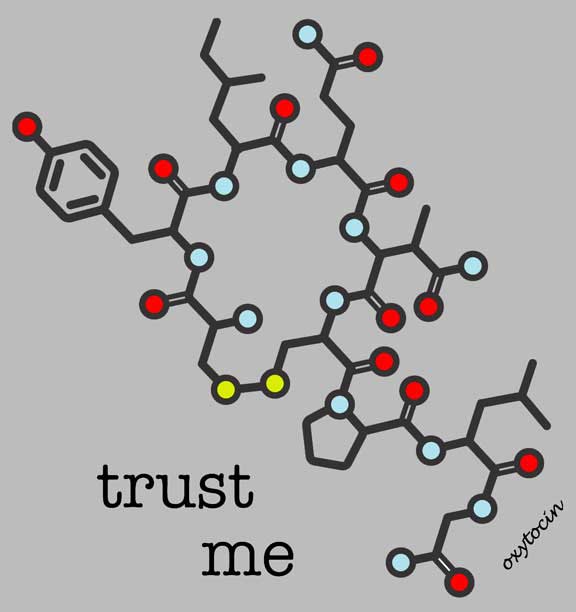Oxytocin the “trust hormone.” How to creating a volleyball practice environment for it release and ultimately your teams success.
Oftentimes in volleyball coaching, our focus strays away from our original goal – creating an environment where players can have fun bonding with friends through sports – and becomes far too task-oriented. Most youth athletes do not initially sign up to play sports to win championships or attain scholarships; they sign up to socialize, to be active, to make friends, and most importantly, to have fun!
Paul J. Zak is a researcher who has spent the last 10 years researching how trust is built in the workplace. His findings, which have been published in the Harvard Business Review, show that if we keep our focus on building social ties between teammates or co-workers, the better their performance will be on the court or in the workplace.
In other words: If you allow them to have fun – what they signed up for – and make friends (also what they signed up for) the wins are likely to follow as a result.
 The psychological explanation of this can be summed up in a single word: Oxytocin.
The psychological explanation of this can be summed up in a single word: Oxytocin.
Oxytocin is a hormone in the human body, though for simplicity’s sake, we can sum up its effects by calling it the “trust hormone.” Neuroscience experiments show that when people intentionally build social ties at work or in the gym, their performance improves because of the release of Oxytocin.
It comes down to trust, and building relationships
Yes, even the most introverted of professions need to socialize. Take engineers, for example. A study of software engineers in Silicon Valley found that those who connected with others and helped them with their projects not only earned the respect and trust of their peers but were also more productive themselves.
So, how can you, as a coach, help people build social connections?
I am a coach who loves winning. But I am also a coach who understands that kids initially become athletes because they love playing sports, and they love spending time with their friends. As such, the number one part of our team culture – above wins and stats and scholarships and championships – is building relationships and enjoying our time on the court together.
Here are a few examples of how I do this as a coach:
- Rule #1 of Our Team Culture: Have fun spending time with our friends playing volleyball.
- We ask the players if we are abiding by Rule #1 in terms of how we conduct practice.
- We consciously craft an environment to help facilitate this rule.
- We play music for 30-50% of practice.
- The players choose the music, and let me tell you, there are few things that can bond a group of teenage girls like singing (if we can call it that) top chart songs together.
- We play more than we drill. Yes, our practices have very little in the form of drills. In lieu of drilling, we play mini-games and 6-on-6 games every day. On the occasion that we do drill, we run what we like to call a GRILL – a game-like drill.
- For mini-games everyone eventually plays with everyone.
- The results from the mini-games matter. By creating a moderate level of stress with the players together to win results in the building of trust.
- We do fun team-building activities every practice that focus around the five dysfunctions of a team, with the main goal of creating shared experiences and helping the girls be vulnerable around one another, which builds trust.
- We include activities such as Bump Up or I Love I Need, which creates a positive and constructive feedback loop, where players are recognizing excellence (another way to build trust) and holding one another accountable.
- We encourage coaches to create bonding experiences outside of the gym. Our favorite method of this is to create a beach or grass practice tournament where the girls will play 2-on-2. Or it could be as simple as getting ice cream or lunch or reviewing film as a team over dinner.
To review, I believe our job as coaches is to craft an environment where players build trust together, as a team, through the shared experience of having fun playing volleyball together. It might sound easy, but in truth, it takes a tremendous amount of work.
Learn more NOW here about our Volleyball1on1 Summer Coaches And Players Camps.







